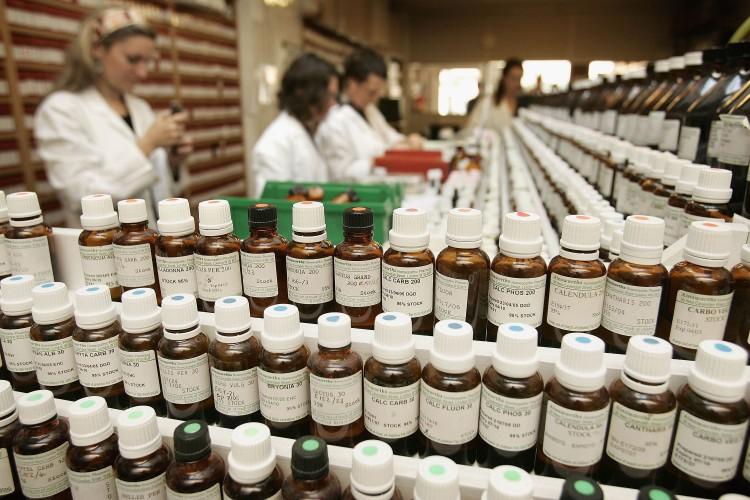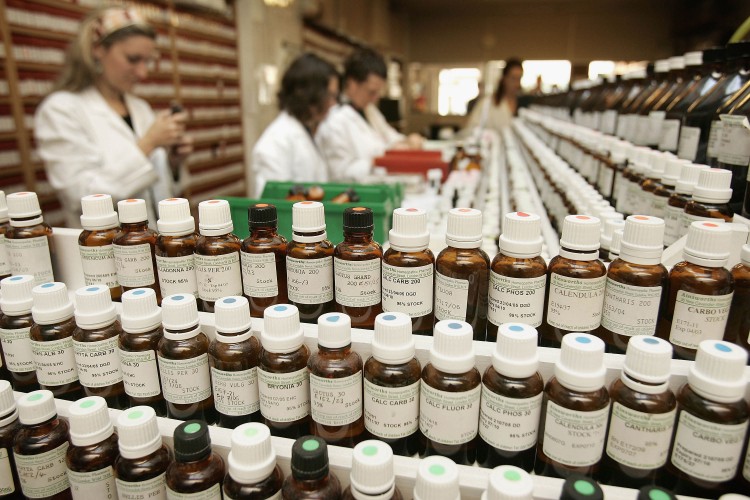Homeopathy has a long tradition in the UK, yet this alternative system of medicine may now be under threat.
The legislation regulating the safety and prescription of medicines is undergoing a major review in July to update and simplify it. Homeopaths worry the anti-homeopathy lobby may use the law to restrict the practice.
It has become established custom and practice for many homeopaths and patients to procure remedies via the internet and telephone.
But under the 1968 Medicines Act, a person may only purchase medicines that are exempt from licensing in person from a pharmacist. This means that the 2,000 practising homeopaths and the 6 million to 9 million patients who use homeopathy are technically acting illegally.
With just five licensed homeopathic pharmacies in the UK, homeopaths say it is logistically unworkable to pick up remedies via a face-to-face consultation with a pharmacist.
They are calling for an amendment in the law to recognise the modern ways of purchasing homeopathic medicines.
“This law was made decades before mail order was a common business practice, and the internet had become a primary driver of commercial enterprise,” says Karin Mont, chair of the Alliance of Registered Homeopaths.
From July 1, the new law, which will be renamed the Human Medicines Regulations 2012, will not contain an exemption to include homeopaths’ modern prescribing methods, according to the government agency the Medicines and Healthcare products Regulatory Agency (MHRA).
“We are concerned that our ongoing access to unlicensed homeopathic medicines may be restricted by the retention of an obsolete law,” Mont says.
She fears that the manufacturers (pharmacies) will suffer the most if the law is enforced, because it would mean a serious loss of trade for them.
Homeopaths say that a simple solution to the anomaly would be to make homeopathic medicines exempt in the new law.
The main stakeholders within the homeopathy profession have worked together for over 18 months regarding the Act’s revision, and had consultations with the MHRA, but “the efforts and suggestions that we made have fallen on deaf ears”, says John Morgan, managing director of Helios Homeopathic Pharmacy.
A spokesperson for the MHRA said they have no plans to change their position on homeopathic medicines in relation to the Medicines Act. “We will investigate any complaint concerned with the manufacture and supply of medicines for human use. Each case will be considered on its individual merits,” the MHRA said in an e-mail.
Continue Homeopaths tailor remedies to the individual patient’s needs
The Epoch Times publishes in 35 countries and in 19 languages. Subscribe to our e-newsletter.
Homeopaths tailor remedies to the individual patient’s needs, 3,000 of which come in more than a hundred different strengths resulting in hundreds of thousands of permutations. The majority of medicines remain unlicensed.
Morgan says, “It is not economically viable to license something that sells 50 to 100 units per year and the licensing process for 30 or 40 remedies takes years.”
Homeopathic pharmacies, however, have had a good relationship with the MHRA for decades.
Rachel Roberts, research consultant for the Society of Homeopathy and chief executive of the Homeopathy Research Institute, says that homeopathy has been incredibly safe and effective for decades, generating few genuine complaints.
“The pharmacies have had all their inspections and spot checks [by the MHRA] to make sure that they’re doing their jobs properly; remedies are well made, safely made, and delivered safely. We are in the mainstream regulatory system and always have been,” Roberts says.
Homeopaths and patients have been writing to their MPs to urge the government to amend the law.
MP Steve Baker’s letter to the Health Secretary Andrew Lansley said: “I believe most strongly that people have a right to take responsibility for their own person and health. Irrespective of the opinions of clinicians and pharmaceutical companies, people should be allowed to continue to use homeopathic remedies. That requires a change in the law so that remedies may be supplied to persons not physically present.”
Homeopathy patient Mary Nondé feels the same. “It is absolutely diabolical that the Medicines Act directly infringes on my freedom of choice to choose homeopathy and to receive the remedies I require,” she said in an e-mail.
However, confusion in government does exist, with some believing that with no change to the law homeopaths are panicking unnecessarily.
Roberts is worried that the new law will fuel the organised anti-homeopathy lobby to use regulations as a way of damaging the profession and trying to stop it being practised in the UK. “Complaints to the MHRA and generally trying to reduce access to it in the UK have gone through the roof recently,” she says.
Andy Lewis from Quackometer, a website outspoken against homeopathy, said in an e-mail, “The medicine regulators have a duty to ensure that unregistered homeopathic products do not enter the market both now and after the consolidated rules come into force.”
Pharmacists say that they have a very strong ethical case in terms of patient safety, patient support, expertise, and training to justify continuing practising as they do, and if a case were brought against them they would defend it.
So what is the argument against homeopathy?
Sense About Science is an organisation of high-profile scientists and media personalities who have openly criticised homeopathy. Assistant Director Emily Jesper explained in an e-mail that, from a scientific perspective, “The medicines have a placebo effect but no other effect, and homeopathic products usually do not contain the ingredients referred to on the packaging.”
Homeopaths admit there is a weakness in their argument to support homeopathy.
“We can’t explain why something that has been diluted 10,000 times or 1 million times can have a tremendously powerful effect on the human body. We’re talking about energy medicine as opposed to mechanistic medicine,” Mont says.
Kay Willis, a homeopath in Maidenhead, says, “For me this could be a personal catastrophe. I feel very strongly that my personal right to choose my own healthcare is at stake here. My family and I have been treated for 21 years by a homeopath and used homeopathic medicines regularly during illnesses. All of us remain fit and healthy.”
“No one is dying of homeopathy. The Queen and Prince Charles take homeopathy,” she says.
The Epoch Times publishes in 35 countries and in 19 languages. Subscribe to our e-newsletter.







